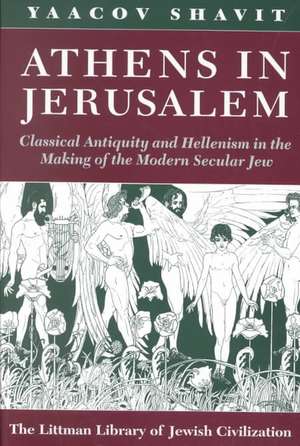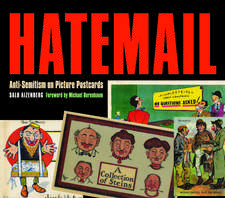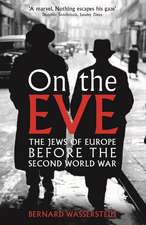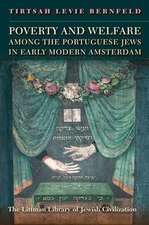Athens in Jerusalem: Classical Antiquity and the Modern of the Modern Secular Jew: Classical Antiquity and Hellenism in the Making of the Moder
Autor Yaacov Shavit, Yaakiv Shavit Traducere de Niki Werneren Limba Engleză Paperback – 30 oct 1999
Preț: 370.32 lei
Nou
Puncte Express: 555
Preț estimativ în valută:
70.86€ • 74.18$ • 58.63£
70.86€ • 74.18$ • 58.63£
Carte tipărită la comandă
Livrare economică 07-21 aprilie
Preluare comenzi: 021 569.72.76
Specificații
ISBN-13: 9781874774365
ISBN-10: 1874774366
Pagini: 576
Dimensiuni: 156 x 234 x 30 mm
Greutate: 0.8 kg
Ediția:Revised
Editura: Littman Library of Jewish Civilization
Seria Classical Antiquity and Hellenism in the Making of the Moder
Locul publicării:United Kingdom
ISBN-10: 1874774366
Pagini: 576
Dimensiuni: 156 x 234 x 30 mm
Greutate: 0.8 kg
Ediția:Revised
Editura: Littman Library of Jewish Civilization
Seria Classical Antiquity and Hellenism in the Making of the Moder
Locul publicării:United Kingdom
Cuprins
Translator's Note Introduction PART I The First Mirror 1 Waking the Dead-Greece as an Ideal and an Exemplar 2 Hellenism and Hebraism: The Two Poles of the World 3 Israel and Greece: Reviving a Legendary Past 4 'Greek Wisdom' as Secular Knowledge and Science 5 Japheth in the Tents of Shem: The Reception of the Classical Heritage in Modern Hebrew Culture 6 The Moral Dimension: Commonality and Particularity 7 Worlds without Compromise: Reconstructing the Disparities 8 Have Jews Imagination? Jews and the Creative Arts PART II The Second Mirror 9 The Nature of the Hellenistic Mirror 10 Judaism and Hellenism in Palestine and Alexandria: Two Models of a National and Cultural Encounter 11 Homeric Books and Hellenistic Culture in the World of the Sages PART III Athens in Jerusalem 12 Back to History: The Secularization of the Ancient Jewish Past 13 The Children of Japheth (Aryans) and the Children of Shem (Semites): Race and Innate Nationalism 14 The People and its Land: Country, Landscape, and Culture 15 A 'Polis' in Jerusalem: The Jewish State 16 The New Jewish Culture: Ideal and Reality Conclusion: What has Athens to do with Jerusalem? Bibliography Index















